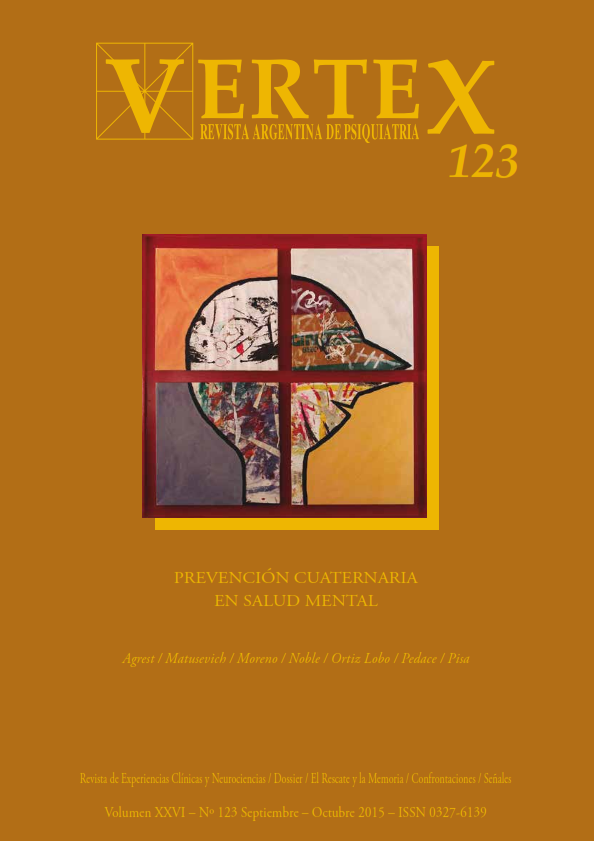La oportunidad de transformar el modelo de atención en salud mental de la Argentina en un modelo basado en fundamentos científicos a partir de la Ley Nacional de Salud Mental
Palabras clave:
Ley Nacional de Salud Mental, Ley N° 26.657, Decreto Reglamentario N° 603/2013, Plan Nacional de Salud Mental, Modelo Biopsicosocial, Pluralismo, Prácticas Basadas en la EvidenciaResumen
Los trastornos mentales contribuyen de forma significativa a la carga de enfermedad, reducen la calidad de vida y suponen elevados costos económicos y sociales. Además, el acceso a los tratamientos y la calidad de los mismos es deficiente, en particular en países de bajos y medianos ingresos. En función de esto, la OMS instó a los países miembros a elaborar políticas y estrategias integrales referentes a la salud mental. En este sentido, en la Argentina se promulgó la Ley Nacional de Salud Mental (LNSM) Ley N°26.657; esta fue reglamentada a través del Decreto Reglamentario N°603/2013 e implementada a través del Plan Nacional de Salud Mental (PNSM). La LNSM define la visión, los valores y los principios para mejorar la salud mental del país. En esta definición, establece que la asistencia en salud mental debe basarse en fundamentos científicos ajustados a principios éticos. Esto, que no es novedoso en otras áreas de la salud, implica un cambio de paradigma para la salud mental en Argentina. Se observan inconsistencias entre el marco conceptual que plantea la LNSM y los instrumentos operativos publicados por la Dirección Nacional de Salud Mental y Adicciones (DNSMyA). Estas inconsistencias reflejan las resistencias al cambio de paradigma.






